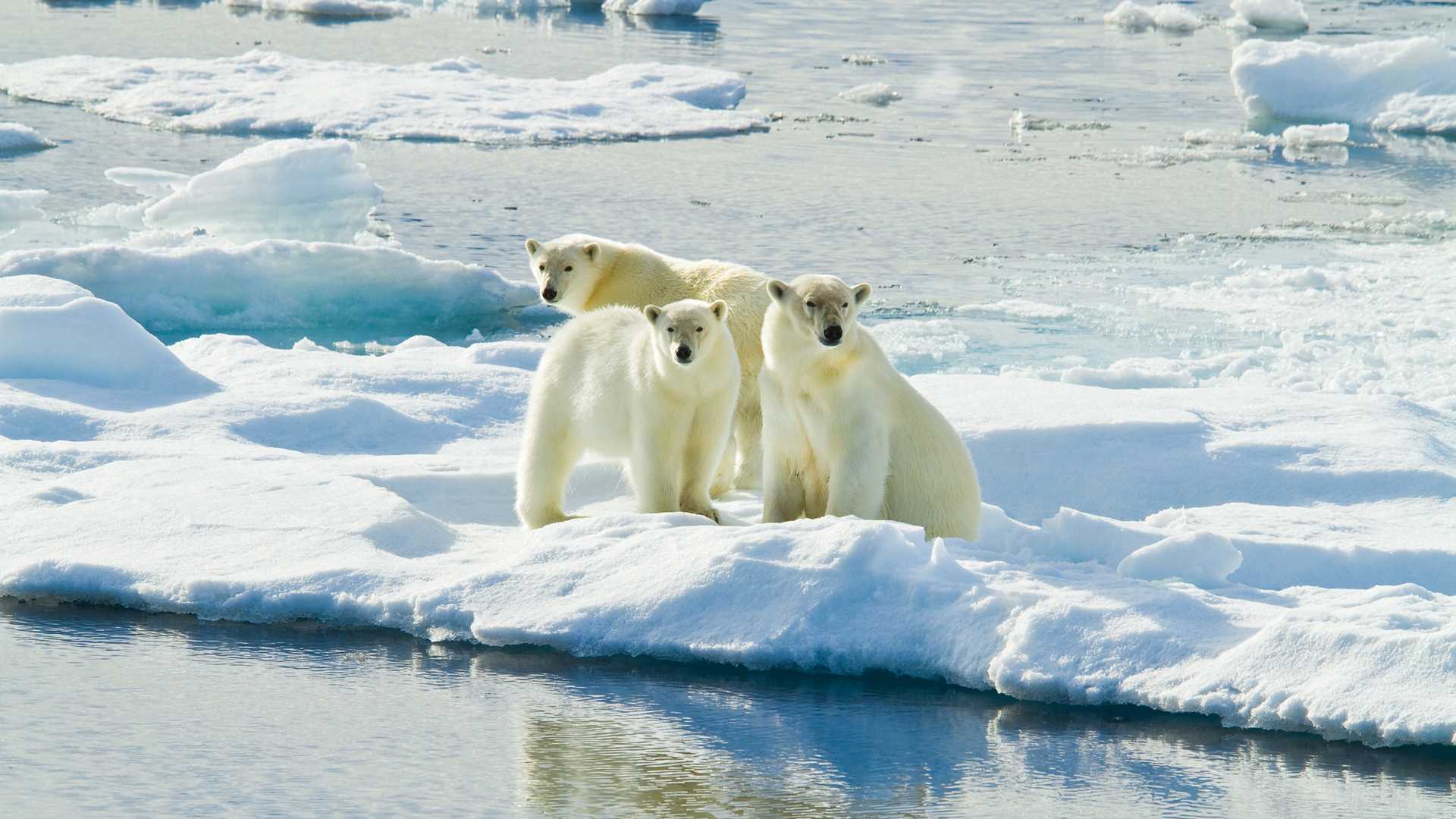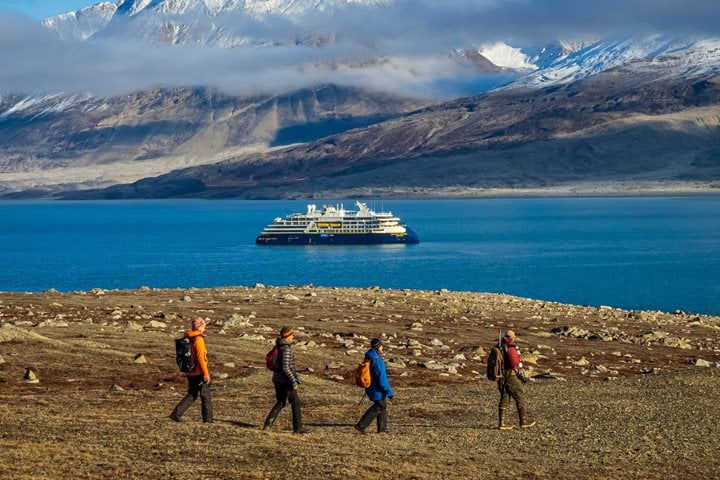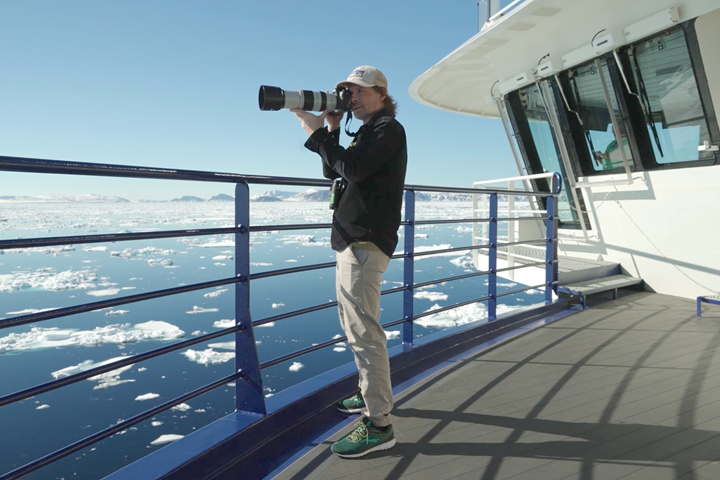“You’re hoping for a bear encounter, but nothing is guaranteed. Having this intimacy with an animal that you’ve heard so much about and then to be face-to-face with it, it just felt deeply personal.” – Anita G., Guest aboard National Geographic Explorer Get Inspired by Photos, Videos, Webinars, Stories, and Exclusive Offers. Sign Up
Photo: Ralph Lee Hopkins
Spotting a polar bear in the wild, a life-list item for many, is a chance for guests of all ages to experience, on a visceral level, the magnitude and singularity of the Arctic. To see frolicking cubs, or an adult stalking a seal or eyeing our ship with its trademark curiosity, makes an indelible impression, and provides an emotional context to the real fact that Arctic sea ice, the polar bear’s vital habitat, is diminishing at an alarming rate.
Photo: Rich Reid
Over our three decades of Arctic exploration, we have learned an enormous amount about where to best find polar bears (as well as walruses, seals, reindeer and arctic foxes). Our ace spotters know how to approach the animals for optimum sightings, while maintaining both the animals’ comfort and our guests’ safety. Go deep into their frozen territory and see for yourself.
Photo: David Cothran
Although polar bears can swim for long distances when they need to, they prefer to stay out of the water on the ice whenever possible. Immersion in the freezing water of the Arctic robs the bears of their body heat much faster than the cold air does, which costs them valuable energy. For this reason the loss of Arctic sea ice means not only loss of habitat for these magnificent top predators but a more challenging life in the areas where some sea ice remains.
Photo: David Cothran
A polar bear nurses her two cubs on sea ice in Nunavut, Canada. Cubs are born weighing less than two pounds and will continue to nurse from their mothers up to 30 months. Polar bears rely heavily on sea ice as a platform for their hunting seals which is their main food.
Want to learn more about polar bears? Here are some of our top trips to experience the magic of polar bears in the wild:




